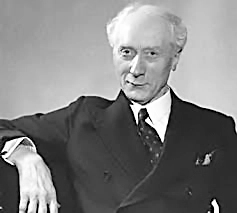Who Was Alexander and Why Does He Have a Technique?
In modern Australia there can be some status attached to having a convict ancestor. This was not the case in F.M. Alexander’s time.
Alexander’s four grandparents were convicts, transported to Tasmania in the 1830s and 1840s when just teenagers or in their early twenties. One stole a dress. Another destroyed a threshing machine in an uprising of agricultural workers. Once in Tasmania, all survived and prospered, and in 1869 their grandson Frederick Matthias Alexander was born in north-west Tasmania. In later years, “he rarely mentioned his forebears, except to suggest they were Scottish settlers”.
He developed a technique because he kept losing his voice
Alexander was working as an actor in Melbourne in the 1890s when he became afflicted with clergyman’s throat, as it was then known. His voice would be fine before performing, and then midway through a performance he would become hoarse. He consulted Melbourne’s medical world but could find no solution, so he decided to investigate for himself. He realised that if his voice was becoming hoarse when performing, then he must be doing something when performing that interfered with his voice.

After much self-observation, he realised what it was – when reciting, and when speaking in general, he would pull his head back, depress his larynx, and tense his legs. He realised that “the act of recitation triggered a whole series of habitual responses which adversely affected various aspects of his functioning”. And he came to realise this didn’t only apply to acting but to everything he did. After many years investigating and experimenting, he succeeded in developing a technique to change his habitual responses and allow the body to work as efficiently as possible. His voice problems were gone, and he’d made important discoveries in the process.
From Australia to England
Alexander lived in Sydney from 1902 to 1904. As well as continuing his acting career, he taught his new methods to acting students, to help with voice production and breathing in particular. And he became known to one of Sydney’s leading surgeons, Dr W.J. Stewart McKay, who reportedly said to him, “If your teaching is sound, I’ll make you; but if it’s not, I’ll break you.” Alexander’s teaching was up to the challenge and McKay recognised the importance of Alexander’s discoveries. He urged him to go to London to achieve proper recognition of his work, and in 1904 he sailed for England, never to return to the land of his birth.
His spent the rest of his life teaching in England and the United States, having a very successful career. His students included authors George Bernard Shaw and Aldous Huxley, as well as many of the leading actors of the day. He died in London in 1955, aged 86. He was “cremated with no ceremony, and his ashes scattered: he wanted no grave or monument”.
Having arrived in Tasmania as convicts, his grandparents attained their freedom, married, settled down, prospered, owned and farmed land, held licences for several inns, and of course had families, including their grandson Frederick Matthias Alexander. He grew up on the family farm at Table Cape, near Wynyard, in north-west Tasmania, and within seventy-five years of his grandparents’ transportation from England, he would be living in London. When established, he would bring his mother and most of his siblings, ‘returning’ the family to England.
Recognition
In 1988, for Australia’s bicentenary, Alexander was recognised for his discoveries and work. A plaque was placed in Wynyard, which says:
On a nearby property was born Frederick Matthias Alexander
20 Jan 1869 – 10 Oct 1955
Founder of the Alexander Technique
Discoverer of fundamental facts about functional human movement
One of the “200 People Who Made Australia Great”
Quotes and material from Michael Bloch’s book “F.M. The Life of Frederick Matthias Alexander”